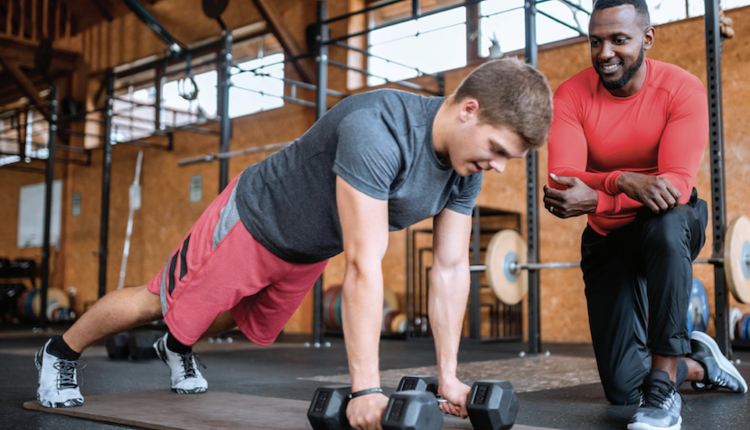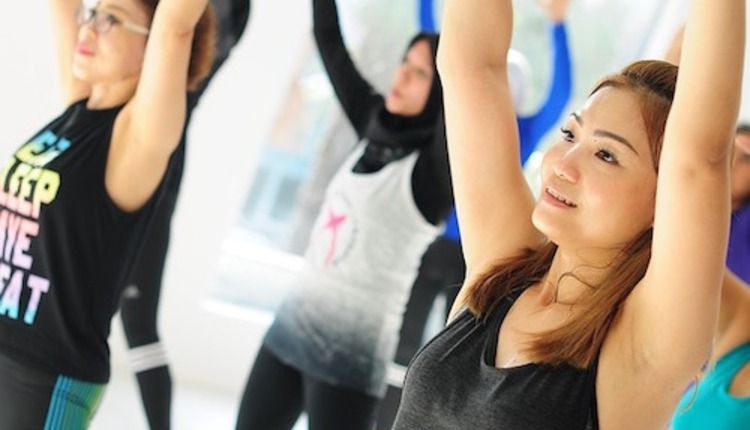The worldwide health and fitness industry will recognize the first annual United Nations-observed World Diabetes Day by kicking off an outreach initiative to educate people across the globe on how exercise can help prevent type 2 diabetes, according to the International Health, Racquet & Sportsclub Association (IHRSA). As part of the initiative, IHRSA also will be sponsoring the Exercise for Prevention Commemorative Eiffel Tower Walk on November 14, World Diabetes Day, in tribute to all those living with and who have died from diabetes. And, as the not-for-profit trade association representing health fitness facilities worldwide, IHRSA is encouraging health clubs everywhere to open their doors for free on November 14 in the hope that greater numbers of people across the globe will open their lives to the preventive power of exercise.
As a worldwide industry committed to healthy living, we must do all we can to educate people on the preventive power of exercise in fighting type 2 diabetes, says Joe Moore, President and Chief Executive Officer of the International Health, Racquet & Sportsclub Association (IHRSA). As the world's population has become more sedentary and obese, more and more people are developing this potentially debilitating and, too often, fatal disease.
The Eiffel Tower Walk will begin at Le Mridien Etoile in Paris, France, and will continue to the Arc de Triumphe in Trocadero and theEiffel Tower. The walk will be held in conjunction with the 246 Step March being organized by the International Diabetes Federation in remembrance of the 246 million people living with diabetes.
Type 2 diabetes results when the body no longer processes sugar properly. Insulin, a hormone created in the pancreas, moves sugar from the blood into the cells, where it can be used for energy or stored for future use. Without insulin, the body cannot use the sugar.
In people with type 2 diabetes, their bodies don't properly respond to insulin, so their cells don't get enough sugar or glucose. Instead, glucose builds up in their blood. Over time, high blood glucose levels can seriously damage the eyes, kidneys, nerves and heart.
Type 2 is the most common form of diabetes, and it occurs in people of all ages and races. As many as 90% of all people with diabetes have type 2!
IHRSA is encouraging health clubs across the globe to offer a full-day open house to help call attention to this serious disease and to allow visitors to participate in exercise classes and use the equipment and facilities free of charge throughout the day.
Exercise helps the body use glucose for energy, keeping blood sugar at healthy levels. Exercise also helps people maintain their weight so they don't become obese, which puts them at risk for developing type 2 diabetes. Too little physical activity and too much sugar in the diet can burden the pancreas, making it work harder to produce enough insulin to keep moving larger amounts of sugar.
We must stop ignoring the threat that sedentary lifestyles and poor diet pose to our health, says Moore. Research shows that regular exercise can lower the risk of type 2 diabetes as well as many other chronic diseases. If we are to reverse the growing diabetes pandemic, we must create living and work environments in our local communities that support regular exercise and healthy living.
Not only does exercise help prevent type 2 diabetes, but it helps keep the rest of your body healthy and strong, Moore continues. Even small amounts of exercise can make a difference. The most important thing is getting started. So get moving today, and exercise for prevention in the fight against diabetes.
IHRSA is a not-for-profit trade association representing health and fitness facilities, gyms, spas, sports clubs and suppliers worldwide. IHRSA is committed to taking a leadership role in advancing physical activity, which is critical to world health and the battle against obesity and disease. IHRSA supports effective initiatives to promote more active lifestyles for everyone, with the goal of having a healthier world population. For more information, visit www.ihrsa.org.
As a worldwide industry committed to healthy living, we must do all we can to educate people on the preventive power of exercise in fighting type 2 diabetes, says Joe Moore, President and Chief Executive Officer of the International Health, Racquet & Sportsclub Association (IHRSA). As the world's population has become more sedentary and obese, more and more people are developing this potentially debilitating and, too often, fatal disease.
The Eiffel Tower Walk will begin at Le Mridien Etoile in Paris, France, and will continue to the Arc de Triumphe in Trocadero and theEiffel Tower. The walk will be held in conjunction with the 246 Step March being organized by the International Diabetes Federation in remembrance of the 246 million people living with diabetes.
Type 2 diabetes results when the body no longer processes sugar properly. Insulin, a hormone created in the pancreas, moves sugar from the blood into the cells, where it can be used for energy or stored for future use. Without insulin, the body cannot use the sugar.
In people with type 2 diabetes, their bodies don't properly respond to insulin, so their cells don't get enough sugar or glucose. Instead, glucose builds up in their blood. Over time, high blood glucose levels can seriously damage the eyes, kidneys, nerves and heart.
Type 2 is the most common form of diabetes, and it occurs in people of all ages and races. As many as 90% of all people with diabetes have type 2!
IHRSA is encouraging health clubs across the globe to offer a full-day open house to help call attention to this serious disease and to allow visitors to participate in exercise classes and use the equipment and facilities free of charge throughout the day.
Exercise helps the body use glucose for energy, keeping blood sugar at healthy levels. Exercise also helps people maintain their weight so they don't become obese, which puts them at risk for developing type 2 diabetes. Too little physical activity and too much sugar in the diet can burden the pancreas, making it work harder to produce enough insulin to keep moving larger amounts of sugar.
We must stop ignoring the threat that sedentary lifestyles and poor diet pose to our health, says Moore. Research shows that regular exercise can lower the risk of type 2 diabetes as well as many other chronic diseases. If we are to reverse the growing diabetes pandemic, we must create living and work environments in our local communities that support regular exercise and healthy living.
Not only does exercise help prevent type 2 diabetes, but it helps keep the rest of your body healthy and strong, Moore continues. Even small amounts of exercise can make a difference. The most important thing is getting started. So get moving today, and exercise for prevention in the fight against diabetes.
IHRSA is a not-for-profit trade association representing health and fitness facilities, gyms, spas, sports clubs and suppliers worldwide. IHRSA is committed to taking a leadership role in advancing physical activity, which is critical to world health and the battle against obesity and disease. IHRSA supports effective initiatives to promote more active lifestyles for everyone, with the goal of having a healthier world population. For more information, visit www.ihrsa.org.











